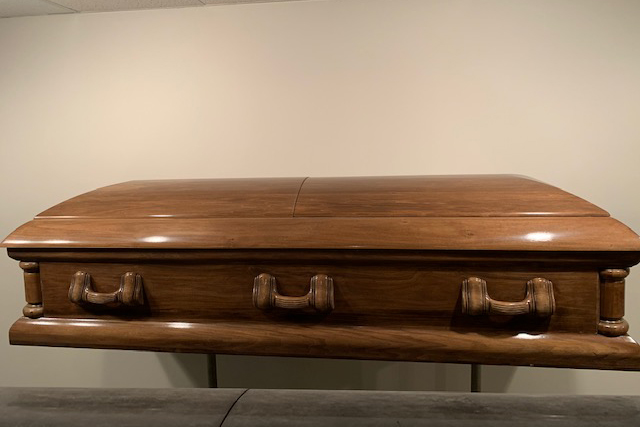Ohav Shalom mourns the loss of our loved ones… your community is here for you in your time of need. Please let us know when a death occurs so we may help you.
There are many questions that need to be answered, and the details can occupy our time when a family member or close friend passes away. During that time, understandably, our emotions may be overwhelming, and our thoughts confused. Shock makes us feel vulnerable, and we may feel frightened and lost. Questions arise no matter what our level of knowledge, as the circumstances of each death vary, and the individuals and families involved bring their own set of unique needs. For this reason, we have people – clergy, funeral directors and community members – to support us at the time of a death. Please contact our Rabbis by phone at 518-489-4706 or by email (Rabbi Dan Ornstein at rabbidan@ohavshalom.org or Rabbi Rena Kieval at rabbirena@ohavshalom.org) in your time of need so they and our Ohav community can provide you with the support and assistance you will surely need.
Chevra Kadisha
What are my responsibilities in the immediate hours and days after the death of a loved one? What does Judaism say about organ donation? What casket should I choose to show appropriate respect to my deceased parent? Will my loved one be buried wearing her favorite jewelry? May I view the body? How do I begin the mourning process in a meaningful way? Judaism also offers us a magnificent structure of ritual practices that guides our behavior towards the deceased and that directs the path of the mourner.
The loving and respectful Jewish customs surrounding death express basic Jewish attitudes that apply in life as well. First, that every one of us is created in the image of God and is worthy of basic honor and respect. Second, that our bodies are sacred, because they house our souls, and because through them we are able to live in this world. And third, that our bodies ultimately do not belong to us, but are only on loan from God, like all of our physical possessions. Therefore, we treat our bodies with care in life and in death, and return them to God as they were given to us.
Chevra Kadish Guidelines
- Chevra members should arrive in a timely fashion and with a serious demeanor, dressed in modest, respectful clothing. A head covering is preferred.
- A team of four women is the ideal number for a tahara. An attempt should be made to gather at least three members in order to ensure a respectful tahara. A tahara should be performed by one person only in extreme, extenuating circumstances.
- Our chevrat nashim performs taharot for Ohav congregants, for a woman who is to be buried in an Ohav cemetery, or for congregants’ close family members and others upon request.
- There is no fee for a tahara – in keeping with the understanding that this is an act of “chesed shel emet,” of pure kindness with no expectation of reward. In order to support the work of the chevra kadisha, a family is invited to make a voluntary donation. Currently, the suggested amount is $100.
- We do not perform a tahara on Shabbat or on Yom Tov.
- The metah must be buried in traditional tachrichim (shroud) for the tahara to be considered complete. If the family wishes to bury any clothing, jewelry or items, we will do so by placing the objects inside the foot of the aron after the completion of the tahara.
- Our group’s custom is not to discuss the tahara with family or anyone other than within our group, including identifying members of the chevra to the family, unless there is a specific situation in which it would be useful or comforting to the family to identify the members, based on information from one of the rabbis or a family member. Generally, family members are not present at a tahara.
- We discourage viewing of the deceased after the tahara is completed.
- It is forbidden for anything to be done during a tahara that might jeopardize the health of any member. Any relevant health information about the deceased is shared, and in any situation of doubt, decisions are made to err on the side of protecting the chevra members.
- We conduct a tahara in an unhurried pace, with caring for the metah and for one another. We understand that there are times our work will be “imperfect,” but we will do the best we can.
- Once a tahara has begun, talking should be kept to a minimum unless needed for the carrying out of the task at hand.
- After the tahara, we wash in the bathroom and conclude as a group by gathering outside the building for brief comments and a prayer.
